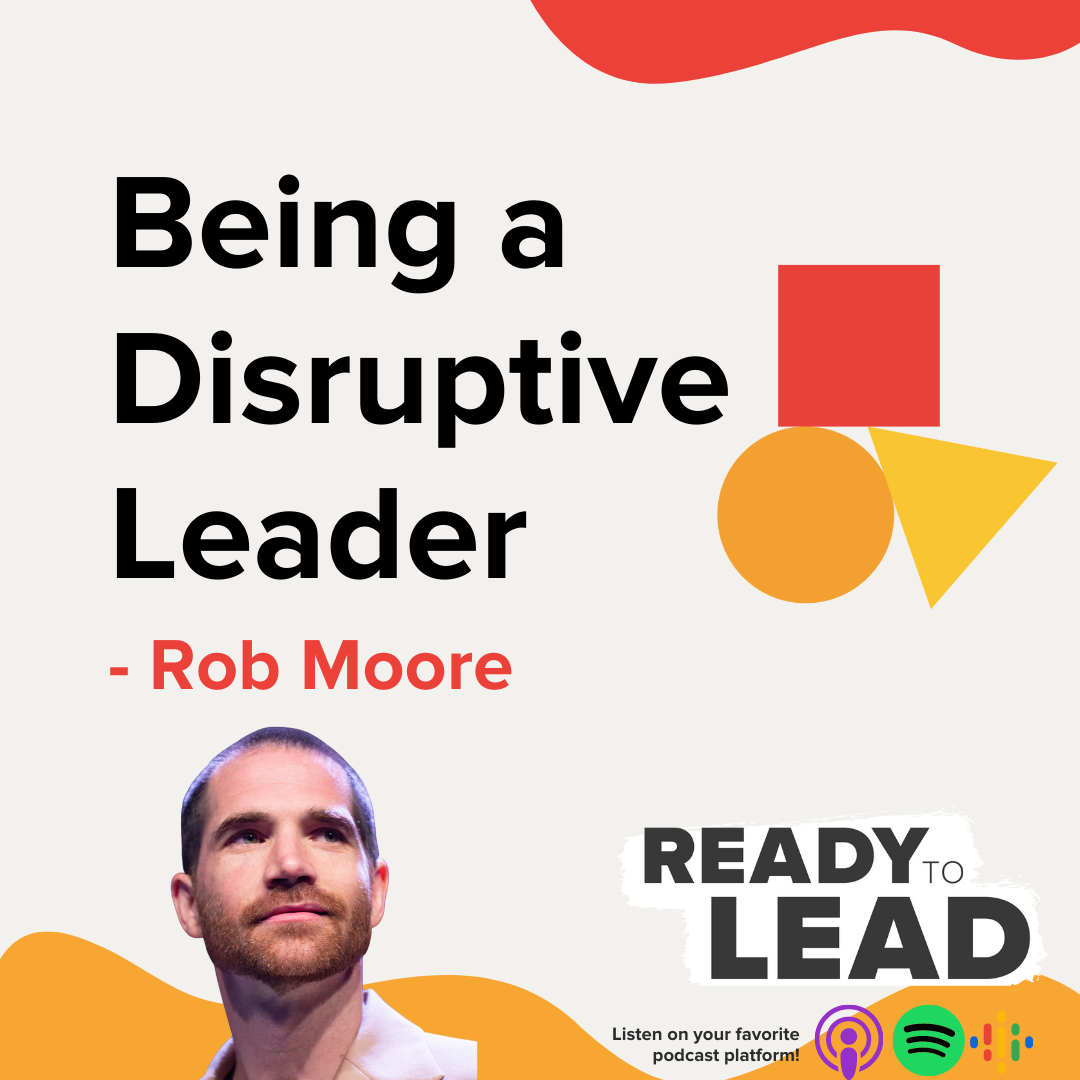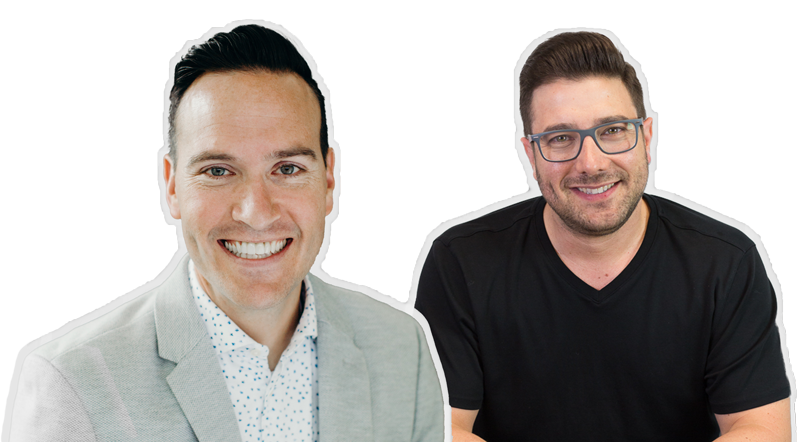The word “disruptive” can have a negative connotation, but it’s really all about stepping in, shaking things up, and making the world better.
Rob Moore is a powerhouse, and he’s super great at what he does. He loves entrepreneurship and property investing; he runs several businesses and two podcasts; and he lives up to his brand as an entrepreneur that disrupts. In today’s episode, he sits down with host Jeff Mask to share his incredible story.
Listen in to be inspired to do some disrupting of your own.
Rob’s Rock Bottom Story
Rob’s dad owned a pub in the UK where Rob worked from age six. In 2005, when Rob was 26, his dad had a massive nervous breakdown in his pub. The police were called, beat his dad up as they tried to restrain him, and his dad was ultimately diagnosed as bipolar. Rob was humiliated, and he determined right then and there to make something of himself, to “make up for lost time after a decade of acting like an idiot.”
Fifteen years later, he has written 18 books, runs several companies, became a millionaire at 31, a decamillionaire at 35, and has raised more than a million pounds through his charities. He says he owes it all to his dad. He’s been able to help his dad retire, buy a house, travel, drive a great car, and he’s going to send him on a 55th anniversary trip overseas. “That’s what being an entrepreneur has given me,” Rob says.
Jeff says that, “when we rattle off CVs that are stale/cardboard, it doesn’t get to the essence of being a human being.” Rob’s story is so relatable to so many. And it really begs the questions:
- Why do we do what we do?
- How were we raised, and now how do we lead?
- How do we take this to a higher, healthier, more productive level based on the difficulties we’ve gone through?
- How do you disrupt yourself?
- How do you disrupt an industry?
- How do you become a disruptive entrepreneur?
- And why does that even matter?
- How does the world benefit from us thinking that way?
Rob answers these questions and more.
What Do You Do?
How often do we hear that question: “So, what do you do?” Jeff asks Rob what his answer is when people ask what he does for a living.
“I never answer what I do,” Rob says. “I don’t fricking know what I do. I spin a lot of plates. I like variety. I don’t want to be labeled or typecast. So I don’t answer what I do. I answer what my vision is, because I’m really crystal clear on that.”
Rob’s personal vision is to help as many people on this planet start and scale their business and get better financial knowledge. Full stop. He’s got billions of people he wants to help, and that is what he does. He answers that question in a vision statement.
Jeff has a vision statement as well. He helps CEOs confidently grow their business without losing their souls.
Knowing your vision statement is an awesome leadership lesson. Why do we do what we do? Why were we put on the planet? The clearer we are with our vision, the more naturally things will flow to us that accomplish and further that vision, and the easier it is to say no to things that aren’t relevant to the vision.
What Does It Mean to Be a Disruptive Entrepreneur?
A few years ago, Rob realized that, if he wanted to grow globally, which he did, he needed to extricate himself from his UK training company. One year he did 250 days of training, teaching courses. Everyone wanted “Rob and Mark at Progressive.” Rob and Mark painted themselves into a corner with their brand, because they were so intrinsically linked to it that they couldn’t really scale it and they definitely couldn’t sell it.
Rob went on a rebrand mission to move himself and his partner out of the brand and brought in a team of trainers. He did research surveys to ask people to describe things, and they all kept saying “disruptive.”
Disruptive can have negative connotations. It often crosses the line. Especially in the UK. You can’t just be disruptive. You need to have something behind it. You need to better an industry, decrease friction, increase speed, something. Otherwise, you’re just noisy.
They decided the brand, the Disruptive Entrepreneur, worked, since everyone was already saying it about him (in both positive and negative ways). So they just went for it. Seven years on, it has stuck with them.
To be disruptive is to shake up how things are done and do them better with boldness and bravery in spite of the ridicule you might get. It’s about finding an industry that’s lazy, monopolized, not representing good value, and improving it, removing the friction, and interrupting the status quo.
Don’t Just Disrupt an Industry; Disrupt Yourself
Rob believes the greatest challenge is continually disrupting yourself so you’re not complacent. With every new level, there’s a new devil, and your reward for solving a problem is a greater problem. Learning to disrupt yourself is critical to staying away from apathy and entitlement and continually pushing ourselves.
- Where can we disrupt ourselves as leaders?
- Where are we not serving our teams well?
- Where are we apathetic?
- Where might we level up a little bit?
It’s human nature to get in a rut. Get out. Find ways to serve your team in a more engaging, selfless, and powerful way.
Disrupting Yourself By Loving Yourself
In a recent post, Rob shared two photos—one of him as a 12-year-old and one of him now. He says, “I wish I could go back and tell that young kid that everything is okay and that he’s useful and valuable and loved.”
Rob has learned so much from leaders and thinkers, but it wasn’t until two years ago that he hired a therapist. He’d had a lot of hesitation. His therapist keeps telling him over and over that he needs to love his younger self. As a kid, he was bullied, felt so much on the outside, wet the bed at boarding school, and suffered from loneliness, shame, and embarrassment. He learned to cope and fit in by being nice to everyone, but he became such a people pleaser and created pain around conflict. He spent his teenage years in pain.
His therapist asked him recently, “What would you say to your 12-year-old self if you met him? What would you feel about him?” He said he’d be embarrassed and ashamed of him. She said, “I can’t believe you’re saying that. You should love him.” He’s working on it.
Therapy and personal development courses have helped him learn to use that loneliness as a force for good. “I did things for recognition and praise for a long time,” he says, “which was fine, because I needed it. But it really has to be about serving others. Since I had that shameful experience, I feel like I can help a lot of people.”
As Jeff leads, especially coaching CEOs, he often says, “All we are as adults is adolescents in big people’s bodies.” We’re all working through being at peace with who we’ve been, who we are today, and who we’re going to become. That’s the journey and beauty of life. That is leadership. The most respected, most successful, most sustainably impactful leaders are the ones who have made peace with who they were as a child and adolescent.
The Universe Is a Mirror
How do we disrupt those negative feelings and love the child within and find gratitude for who we were and who it made us today? Because, otherwise, we project it on the people we’re leading.
Rob says that, if you are hurt as an individual, you’re going to hurt other people or retreat/hide. You can only effectively lead others consistently when you let go of the hurt you’re feeling and the negativity you might experience toward yourself.
He believes the universe is a mirror. If you’re hurt and hurt people, your whole life will be a combat. To love, you have to love within. Your self-worth projects out and attracts or helps lift people out, then the universe as a mirror reflects that back to you.
Being comfortable with who you are means you can accept challenge and criticism. Can you say that, despite your failings, you’re not a failure? And despite your experience, you’re still useful and valuable? That’s the strong foundation to be a leader.
How you receive information from people is fully your responsibility. Don’t take things personally, and you won’t be triggered. And you can be a brilliant leader. Be humble, self-aware, at peace with yourself. Have compassion for others.
Rob says, “I really believe greatness and beauty and wealth and relationships and experiences and success is on the other side of being bold and taking risks, doing things that are uncomfortable, scary, a bit big for you, that you’re not quite ready for.”
He finishes every piece of his content with this saying: if you don’t risk anything, you risk everything.
Richard and Jeff want to hear from YOU. Was something in today’s episode a big aha moment for you? What risk are you going to take today? What have you discovered about yourself and your team? Email them here with your thoughts/questions: feedback@readytolead.com
RESOURCES:
OTHER SHOWS YOU MIGHT ENJOY:
- Business Lunch with Roland Frasier and Ryan Deiss
- Perpetual Traffic with Ralph Burns and Kasim Aslam
- DigitalMarketer Podcast with Mark de Grasse


